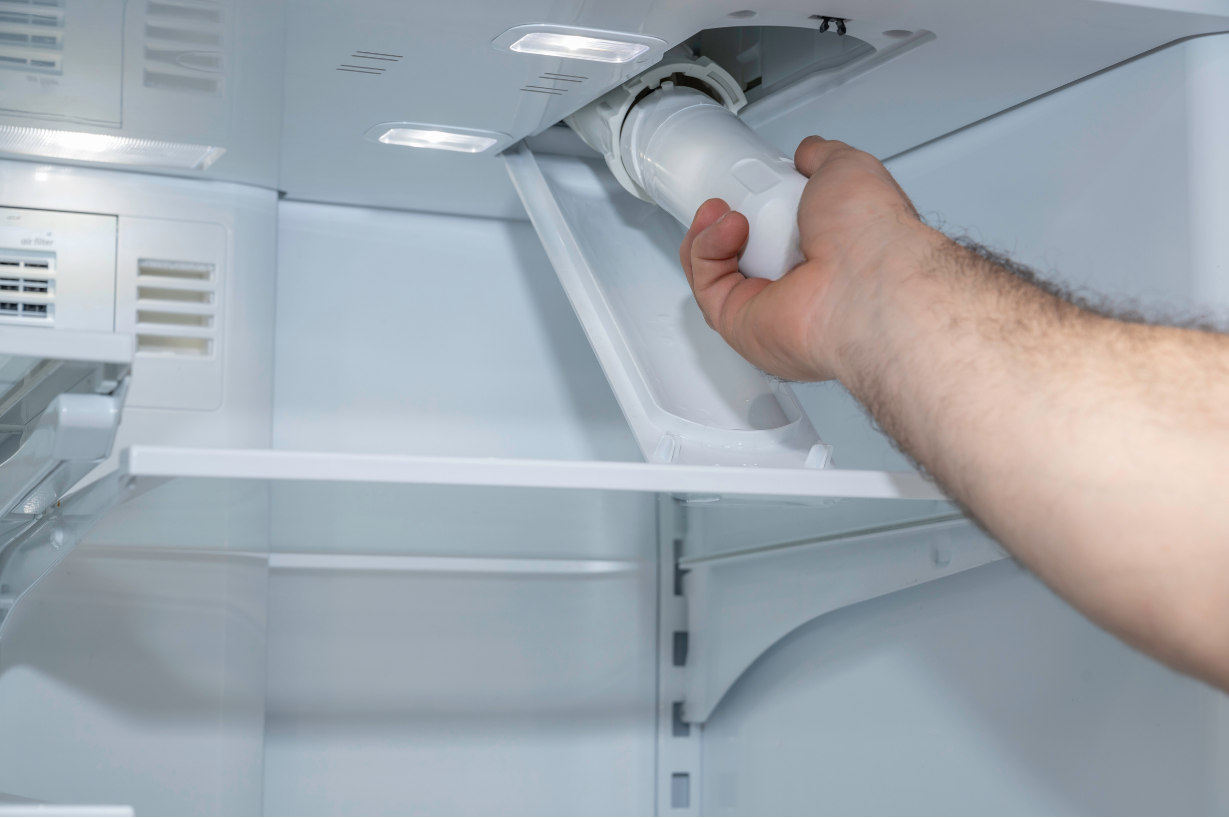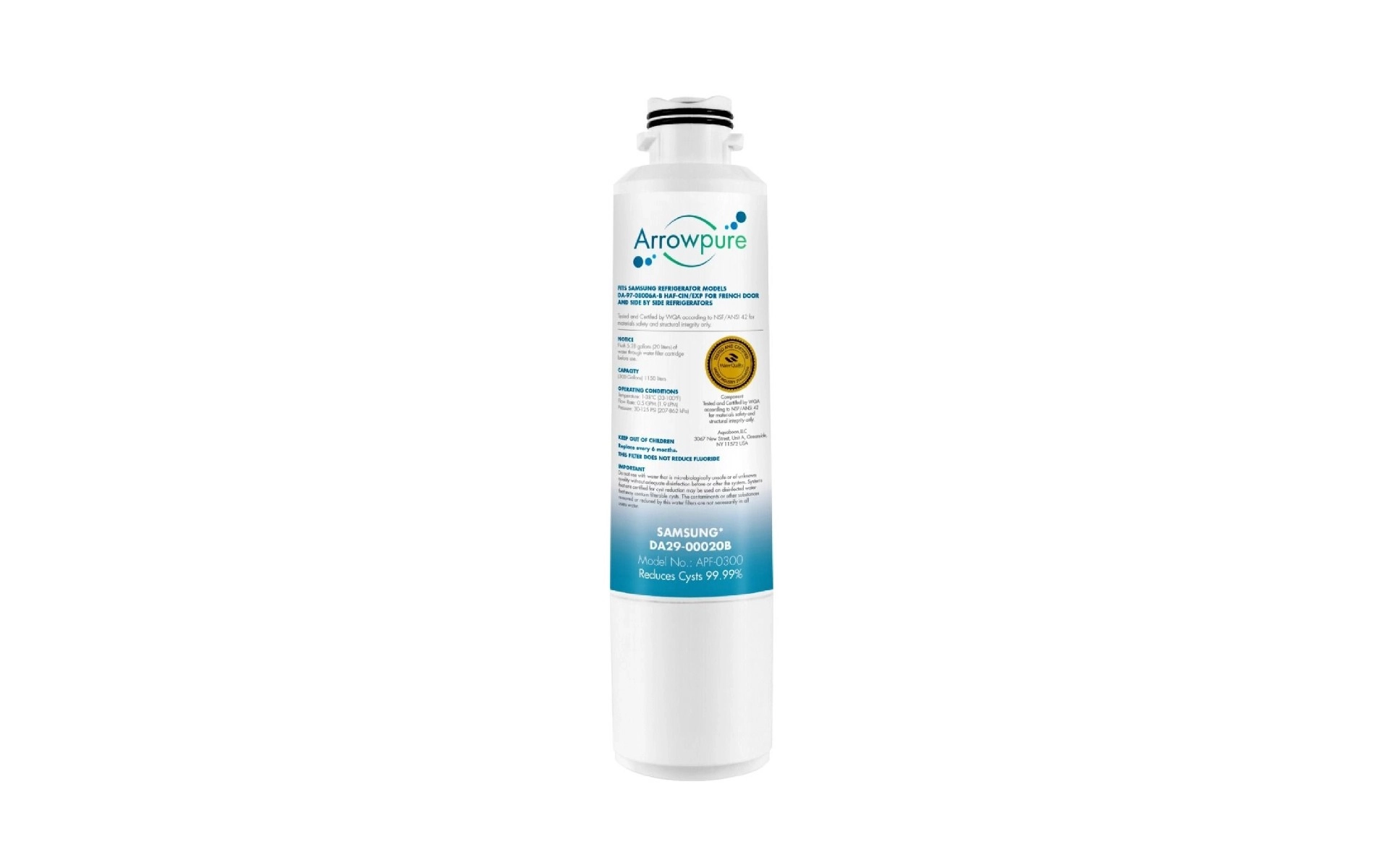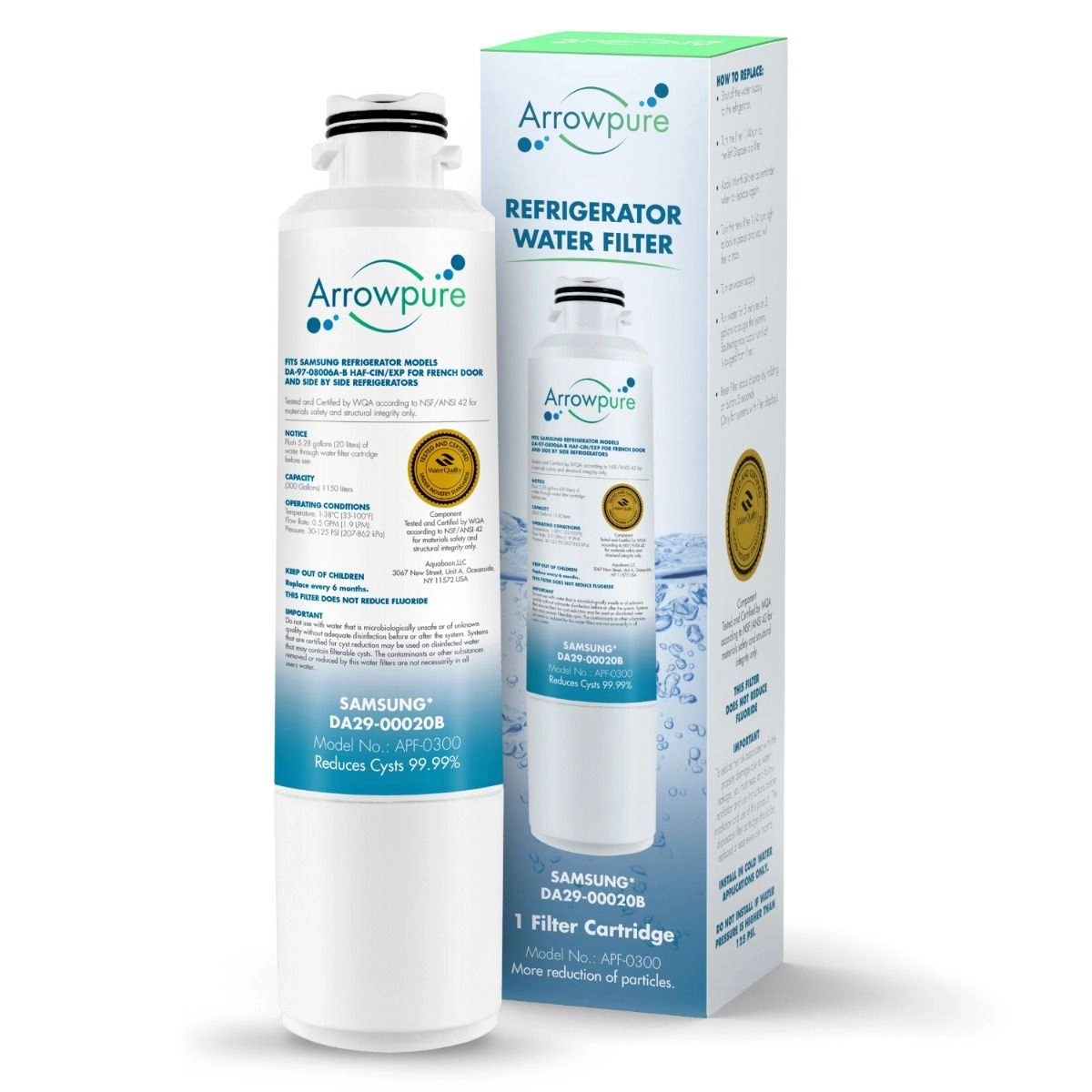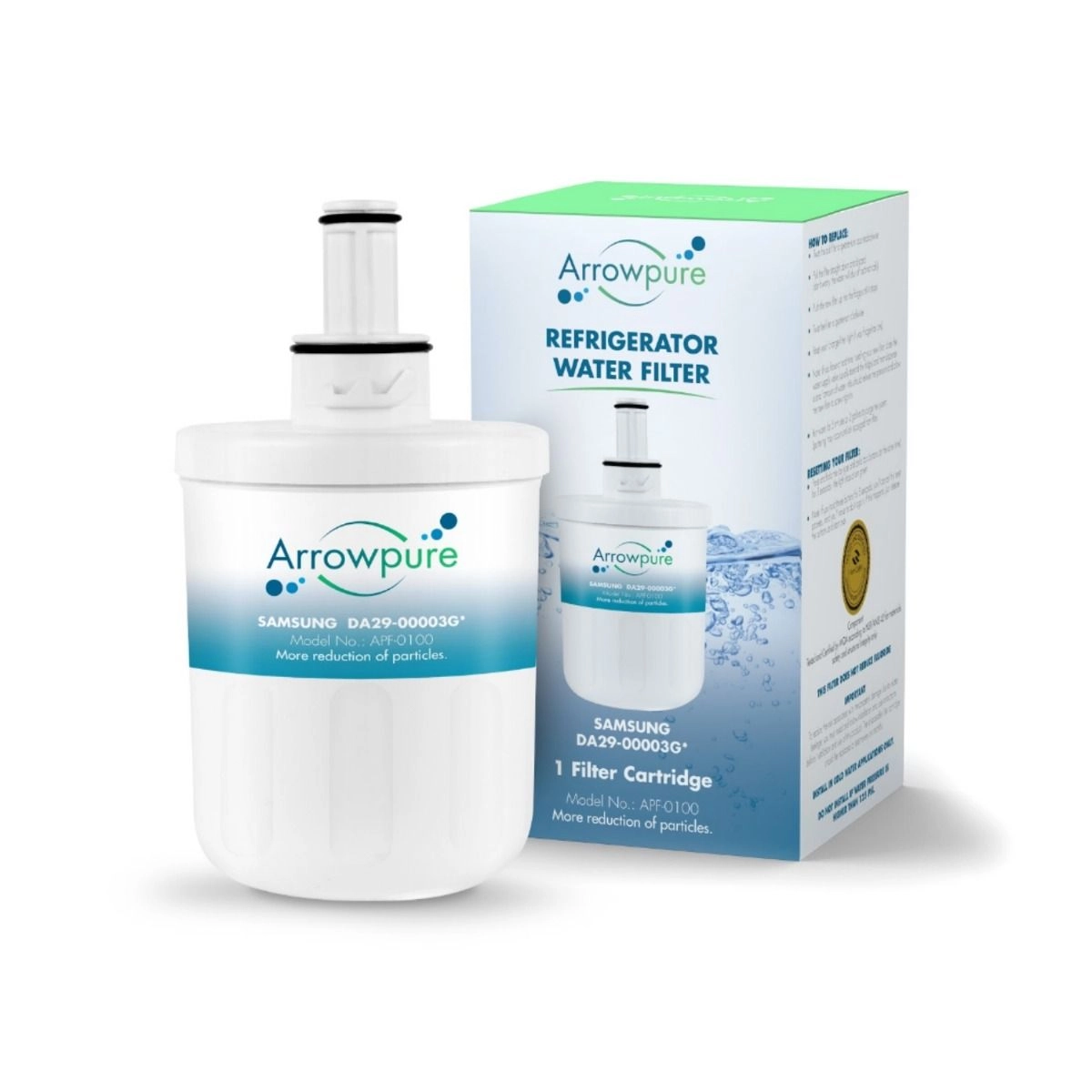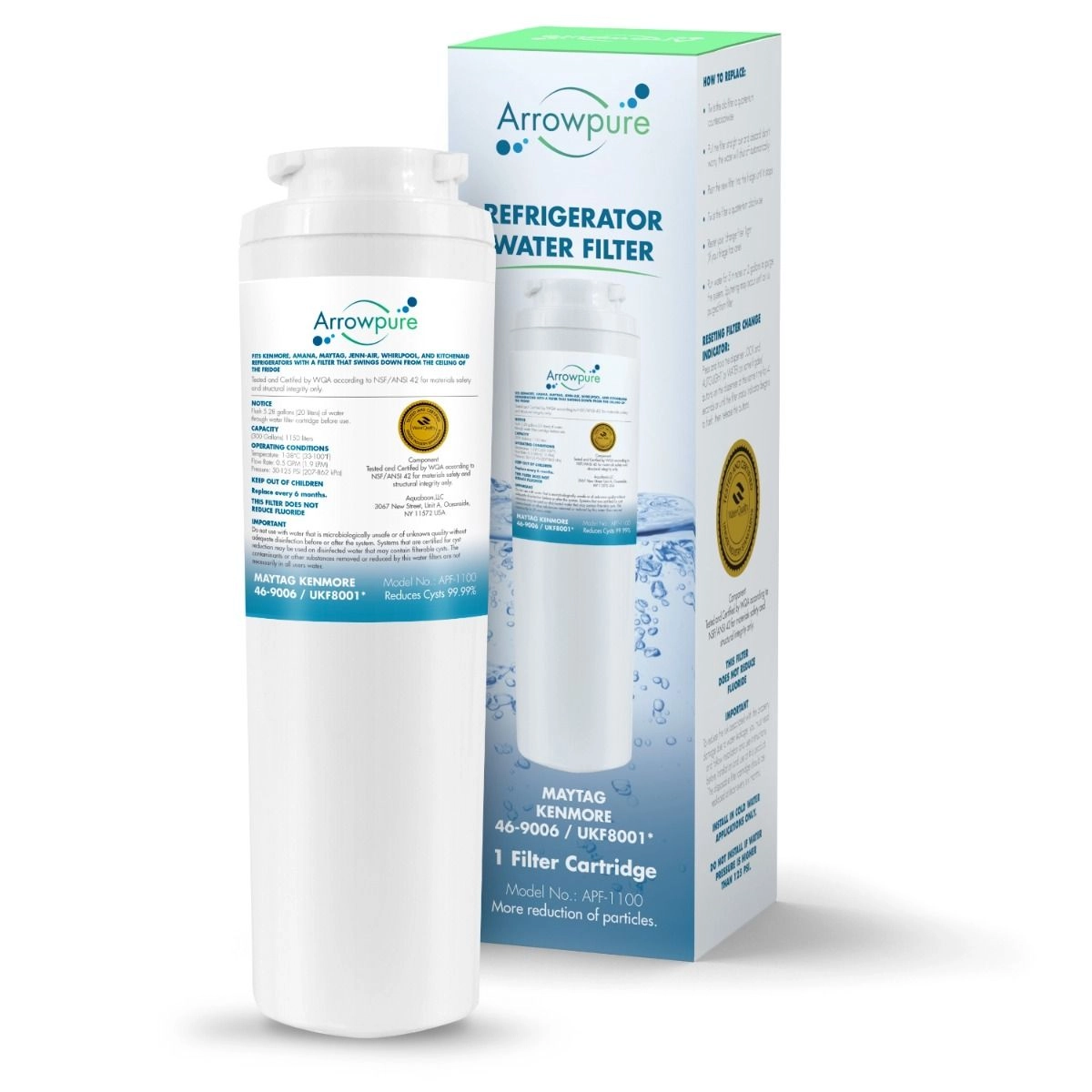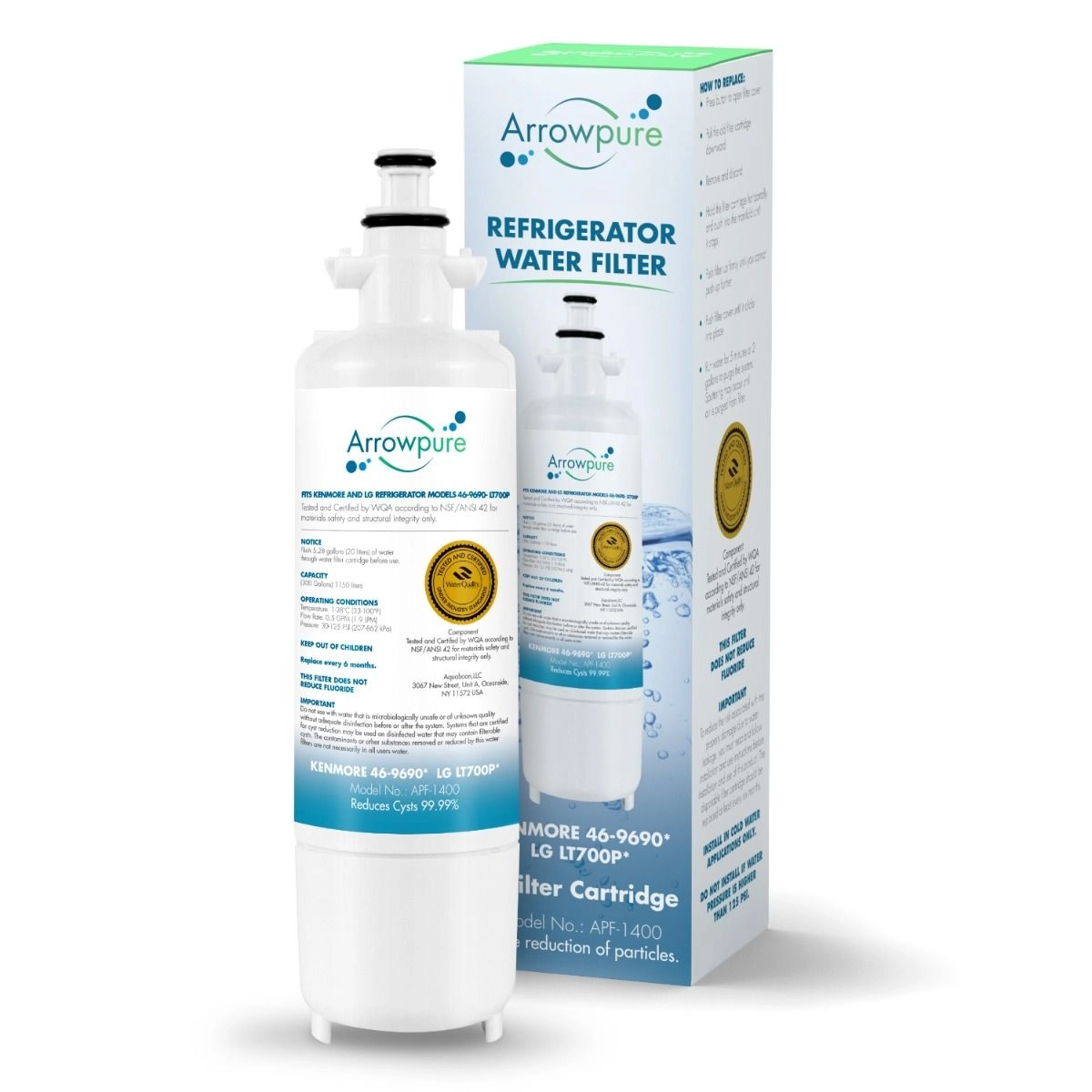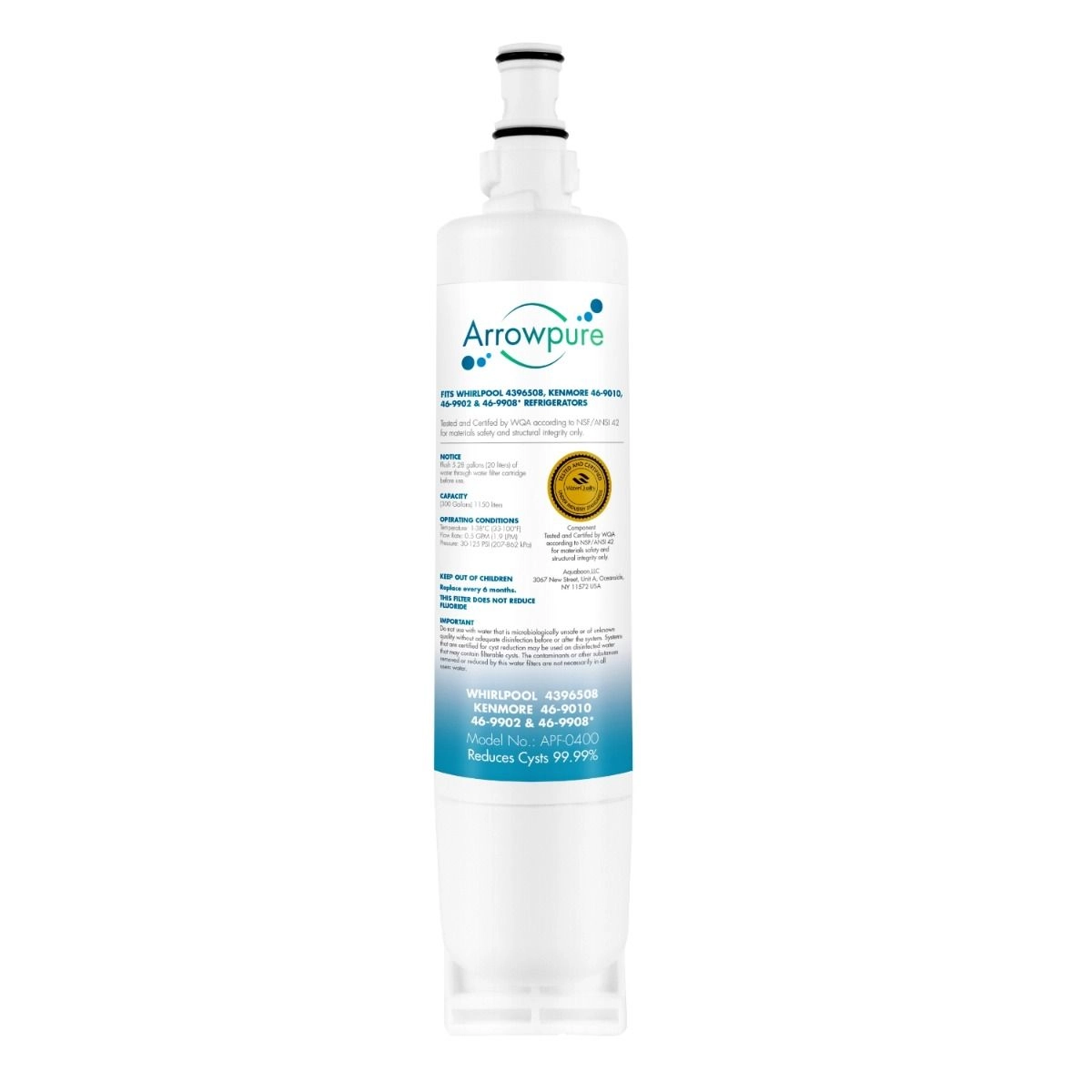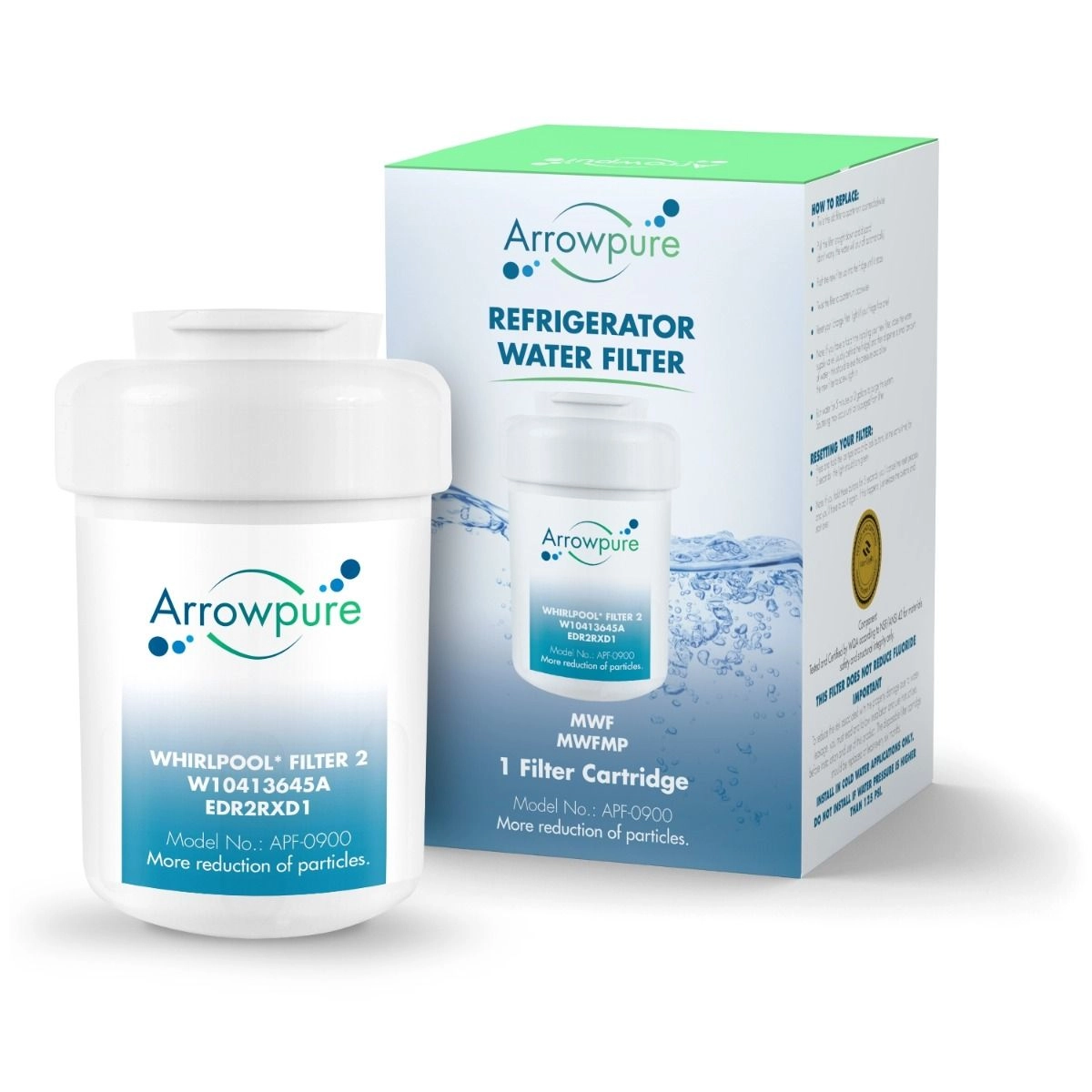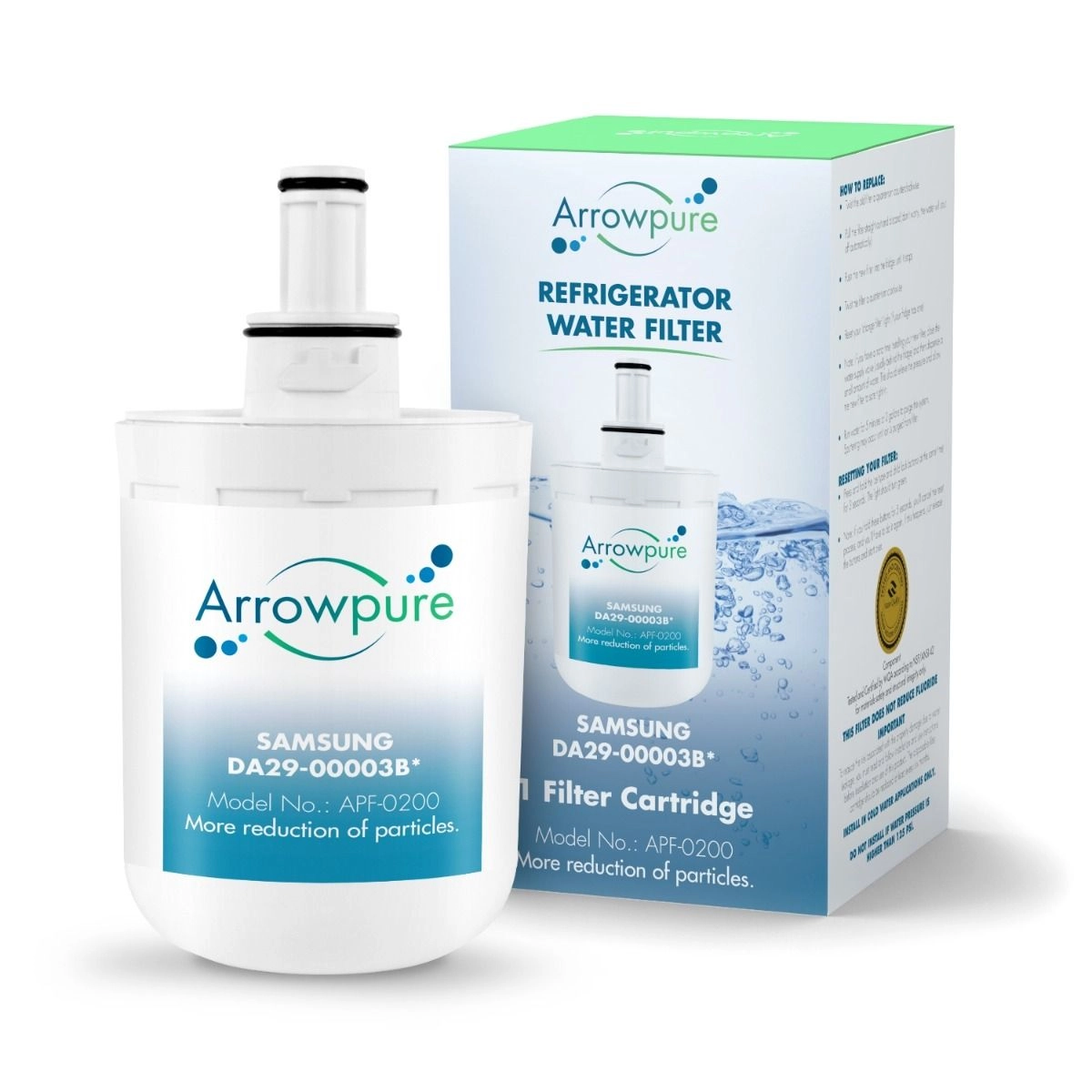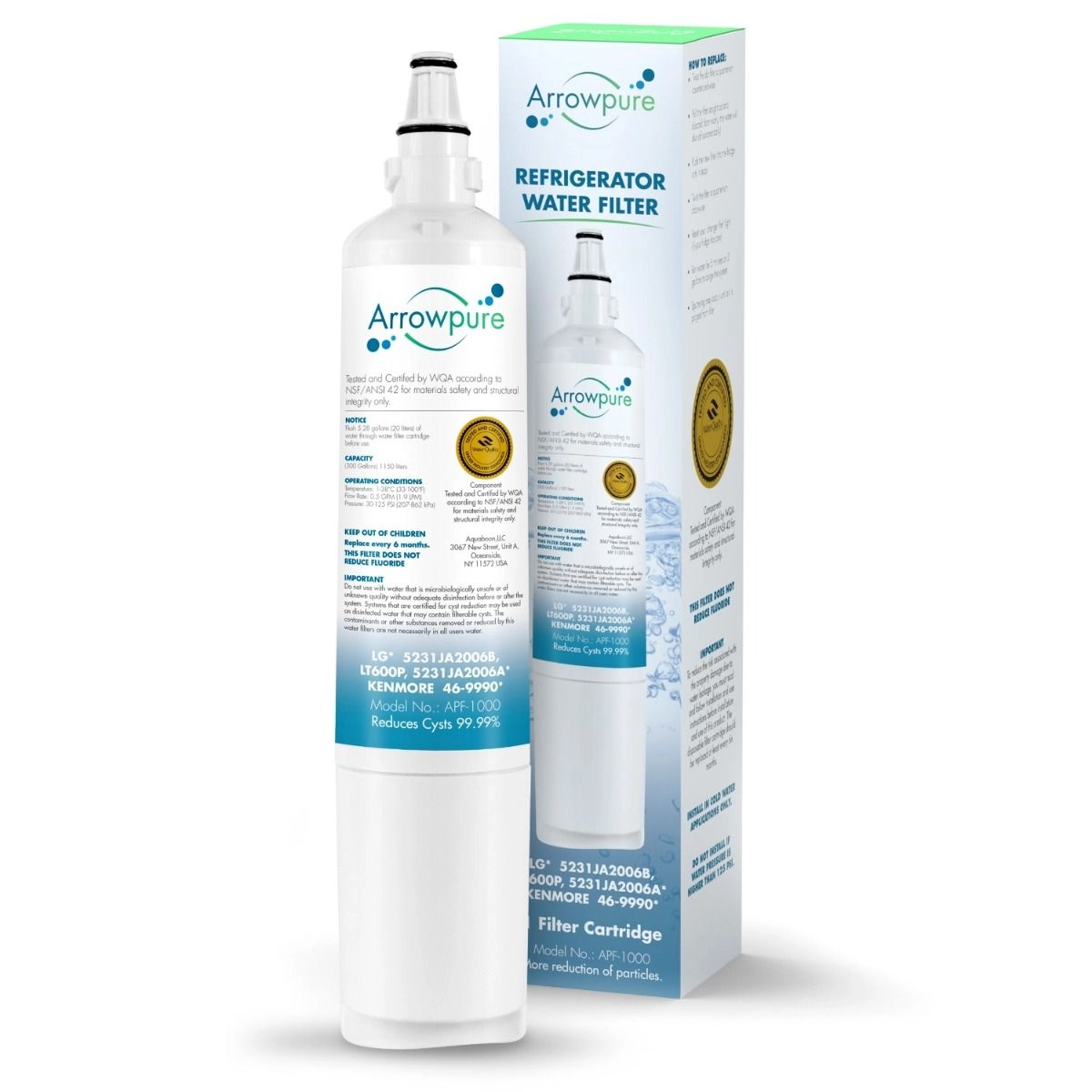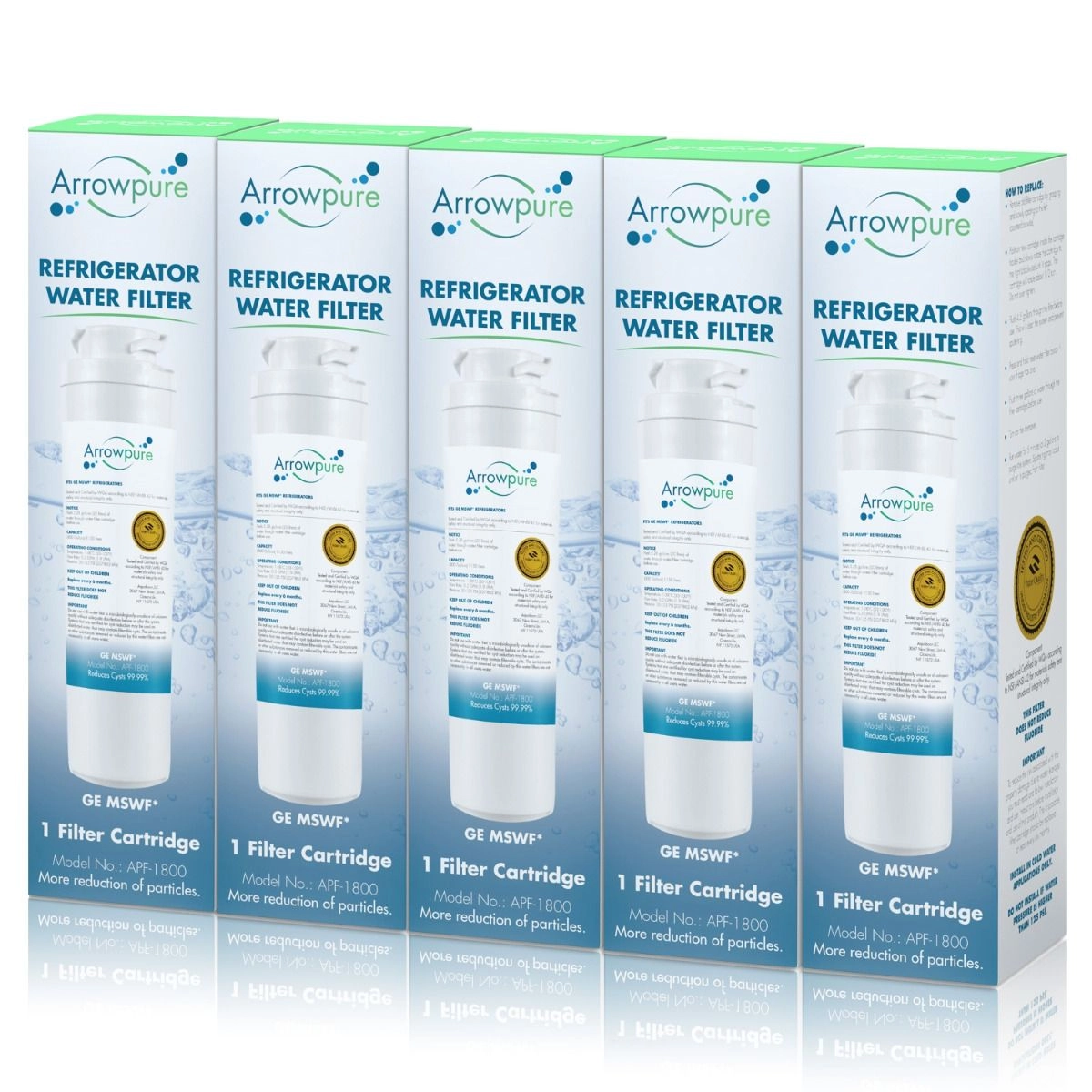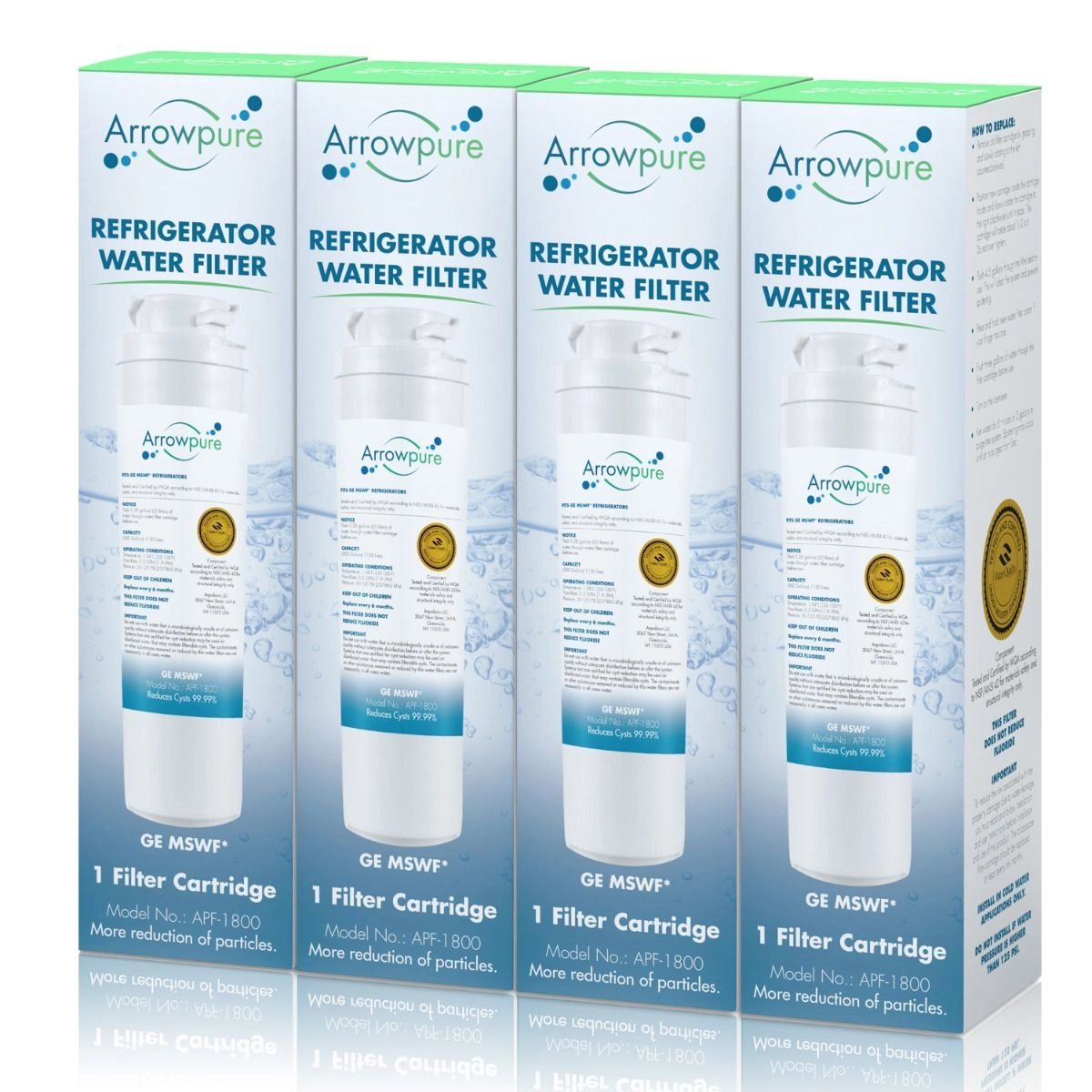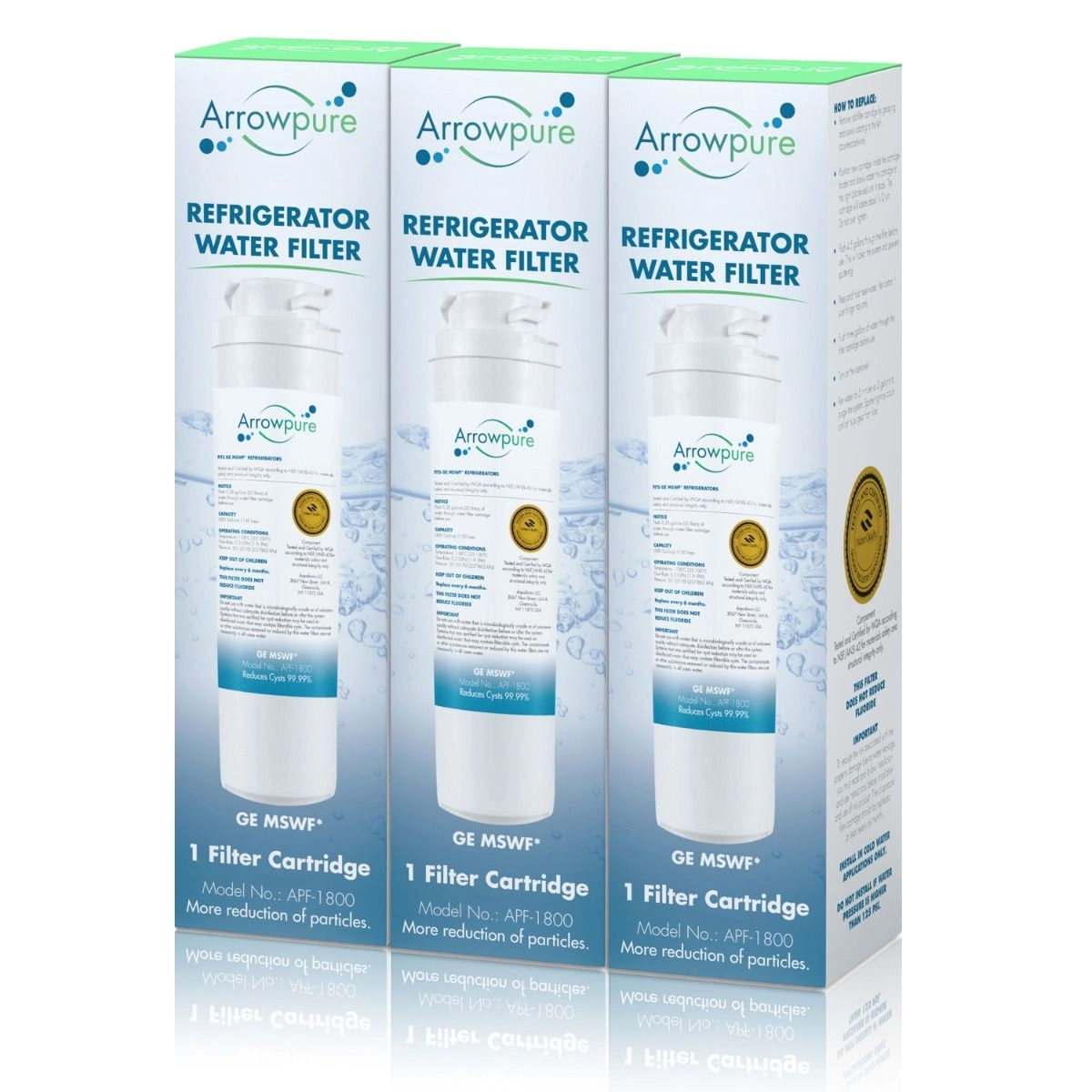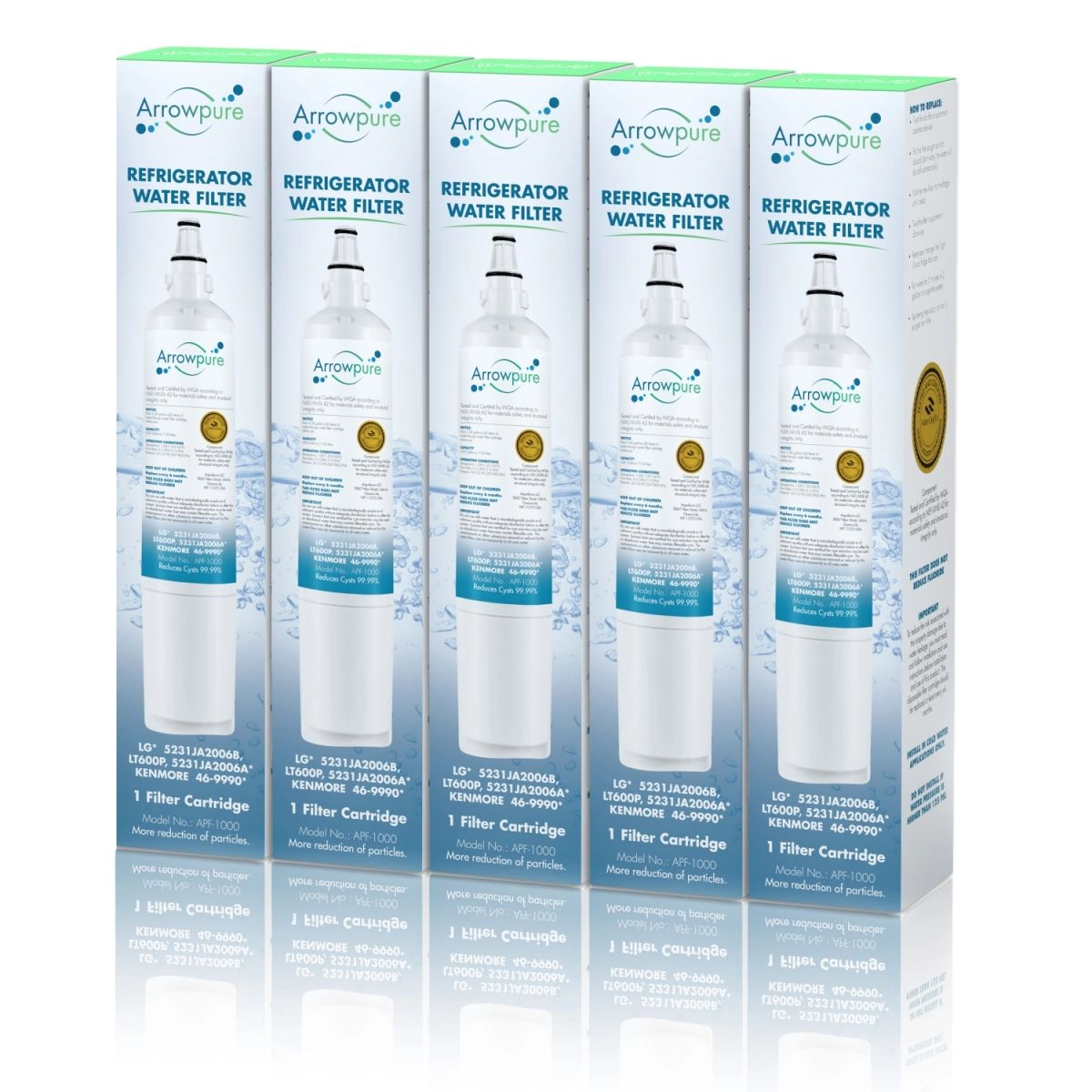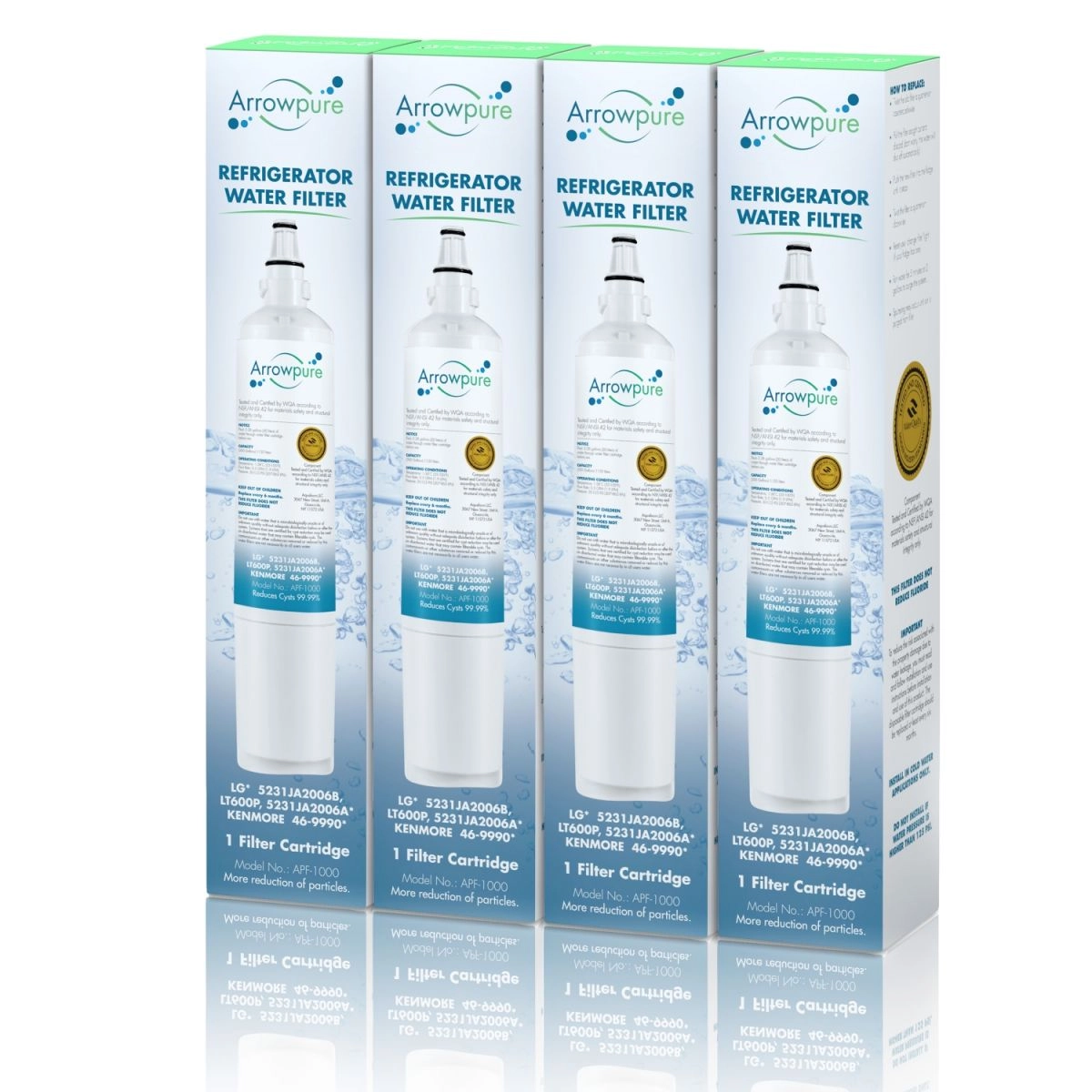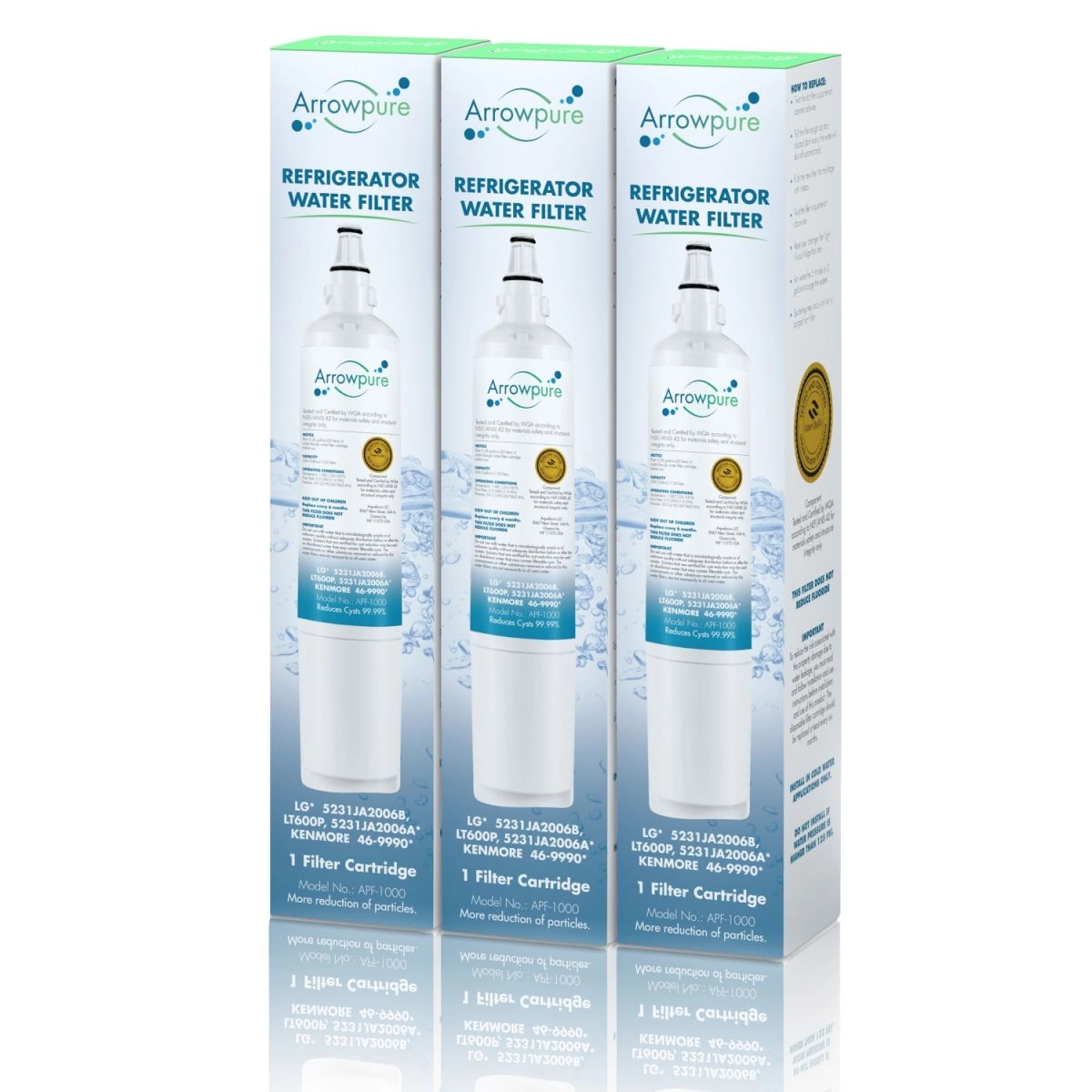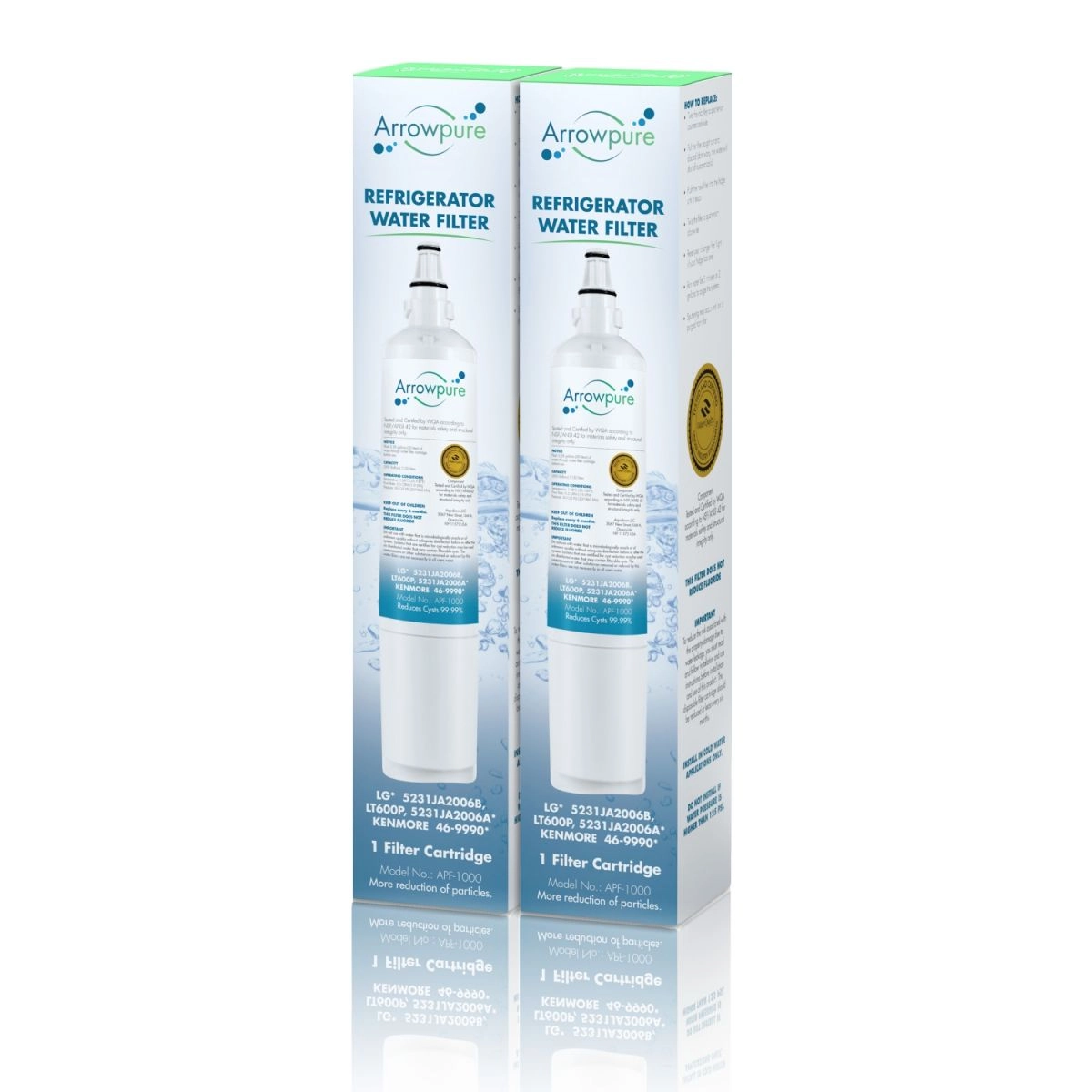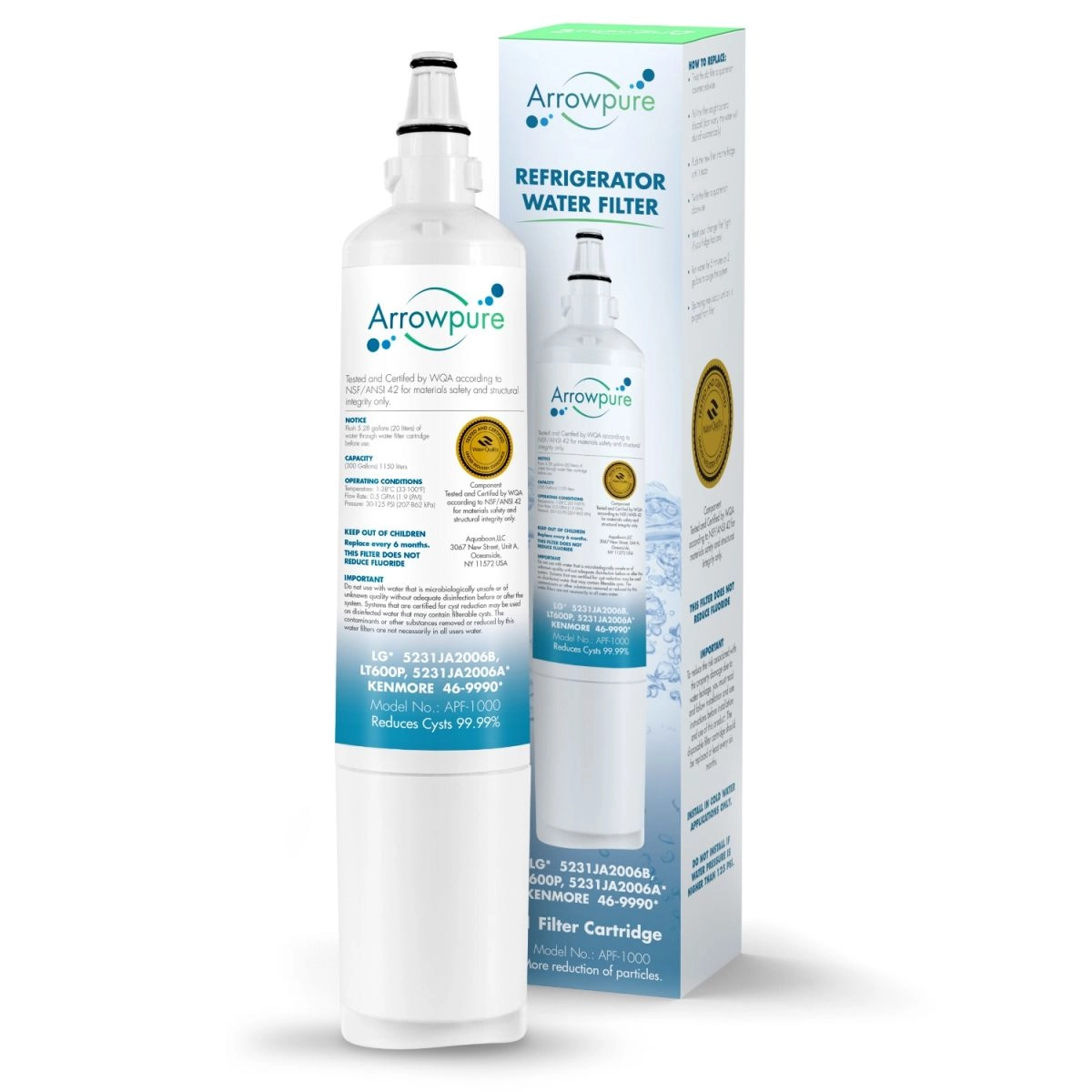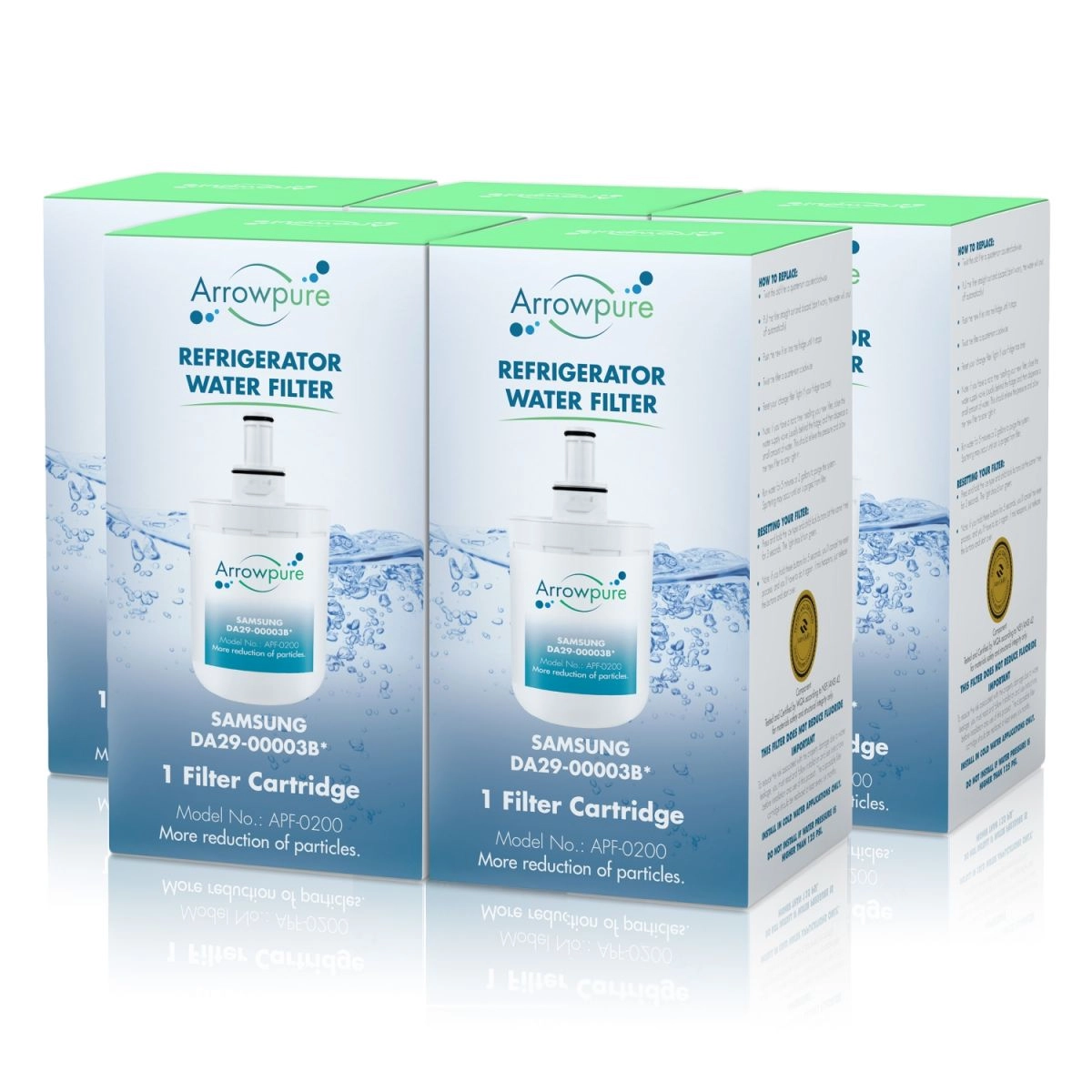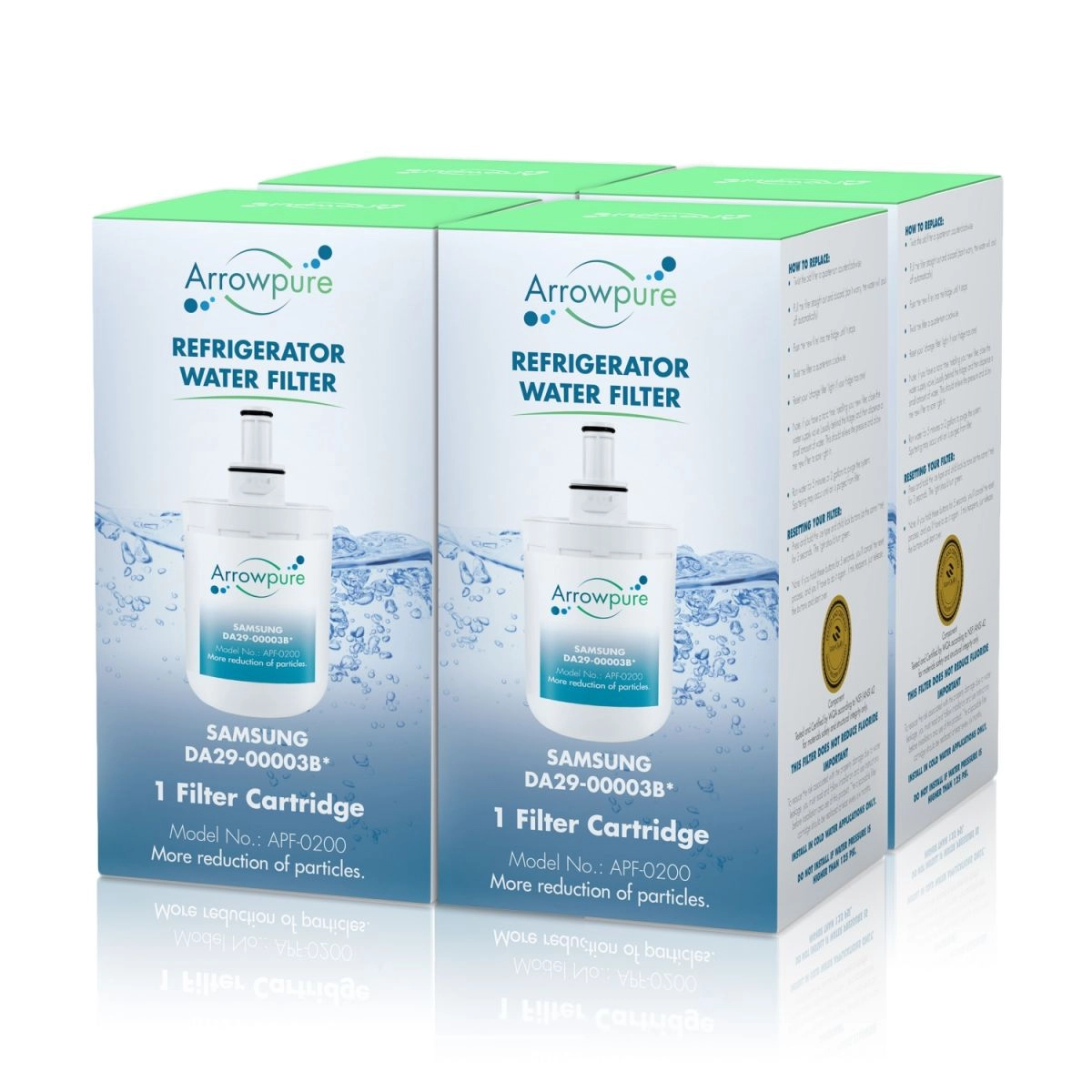Do you know that even with a poor water source, you can enjoy safe, clean water directly from your fridge? Refrigerator water filters are designed to purify the water coming out of your dispenser. But with so many options on the market, how do you know which one to pick?
This complete refrigerator guide answers the questions, "what water filter do I need for my fridge; why change it, and how often to replace the filter?" Read on to learn more.
Why and how often should you change the filter in your fridge?
Refrigerator filters, like any other piece of equipment, degrade with time. They can become clogged with contaminants over time, making them less efficient.
Users may also experience foul tastes, odors, or cloudiness in water due to chemical buildup in the water supply and ice maker. Regularly replacing the refrigerator's filter is the only way to ensure that the water from the dispenser is always clean and safe to drink.
The top reasons to regularly replace them are.
- Improved water quality
- Preventing the buildup of bacteria.
- Better appliance performance.
- Reduced maintenance and repair costs.
- Saving you the cost of buying bottled water.
But how often should you replace a fridge water filter?
This depends on a few factors.
- The make and model of your current filter.
- The amount of water you use.
- The quality of your water.
Usually, a 6 monthly interval is a good rule of thumb. But if your water source is bad or you use your fridge dispenser a lot, you might need to replace it more often.
Manufacturers usually make replacement recommendations on their products or website. This information will also give you a better idea of how to plan your replacement schedule.
Steps of choosing a water filter for your refrigerator
If you're looking for information on how to find a water filter for your fridge, here are a few tips to point you in the right direction.
Take note of the brand and model of your refrigerator
One common question that fridge owners may have is, "what filter for my fridge should I get?" The brand and model of your appliance can help answer this question. While there are products that are compatible with a wide range of refrigerators, it is always best to the water filter that is an exact fit for your fridge. This will provide the best filtration results.
OEM vs generic brand
Next, decide whether you want to buy OEM (Original Equipment Manufacturer) or a generic model. OEM parts are developed and produced by the same company that created your refrigerator, so they will perform optimally. These types offer the maximum amount of filtration, but they are also the most costly.
Conversely, generic products are more likely to fit multiple refrigerators. They are also less expensive than OEM products. They may not provide the same level of filtration, though. Be sure you choose a reputable supplier if you choose this option.
Check filtration ability
It is also important that you look at filtration capacity. This is usually measured in microns. The smaller the micron, the more impurities it will eliminate, albeit at a slower speed. Consider filters that are rated 0.5 microns rated for best results.
Look for NSF certification
The NSF certification is an international certification that shows that your filter meets the NSF standard. This is that standard that stipulates whether or not it meets public and health safety standards.
There are different types of NSF certification, including certifications 42, 53, and 401. Filtration products that are certified NSF 42 are able to reduce chlorine, chloramines, iron, manganese, and a few other contaminants. NSF certification 53 includes heavy metals, lead, and VOCs on this list. NSF certification 401 goes further by eliminating pharmaceuticals, chemicals, and pesticides in drinking water.
Every filter guide recommends going for products that are NSF certified to ensure that they have been tested and meet strict standards for quality and performance.
Check for ease of installation
Finally, consider the ease of installation when choosing a refrigerator filter. Some require professional installation, while others can be easily installed by the homeowner. To minimize any unwanted headaches or costs, pick something that is simple to install and maintain.
Can I use my fridge without a water filter?
Yes. Using the refrigerator without the water filter is okay. However, missing or worn-out filters can put you at risk of water-borne diseases. Replacing it regularly can ensure that the water coming out of the dispenser and ice maker is clean and safe.
It is, therefore, not recommended to use your refrigerator without one unless you have already invested in water filters for the whole house.


